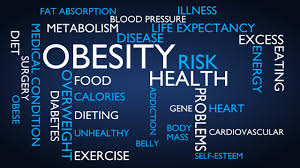Maintaining good health is about more than just avoiding illness—it is about thriving physically, mentally, and emotionally. A balanced lifestyle can prevent disease, enhance your quality of life, and promote longevity. Here are ten practical tips to help you on the path to better health.

1. Eat a Balanced Diet
A nutritious, balanced diet is essential for maintaining energy and overall health. Focus on: Whole foods like fruits, vegetables, whole grains, and lean proteins. Healthy fats like those found in avocados, nuts, and fish. Limit processed foods, added sugars, and excessive salt, as these can lead to chronic health problems. Pro tip: Eat a variety of colors in your meals to ensure you are getting a range of vitamins and minerals.
2. Stay Hydrated
Water is critical for almost every bodily function, from digestion to temperature regulation. Dehydration can lead to fatigue, headaches, and more serious health issues. Aim for at least 8 cups of water a day. Adjust your intake based on activity level, climate, and individual needs. Pro tip: If plain water bores you, try infusing it with fruits or herbs like lemon, mint, or cucumber.
3. Exercise Regularly
Physical activity is a cornerstone of good health. Exercise improves cardiovascular health, strengthens muscles, and boosts mental well-being. Aim for at least 150 minutes of moderate-intensity aerobic exercise per week. Mix in strength training and flexibility exercises to keep your muscles and joints in top shape. Pro tip: Find an activity you enjoy—whether it is swimming, yoga, cycling, or dancing—to make exercise fun.
4. Prioritize Mental Health
Mental well-being is just as important as physical health. Stress, anxiety, and mental fatigue can have a profound impact on your overall health. Consider: Practicing mindfulness or meditation to reduce stress. Seeking professional help if you are dealing with mental health challenges. Maintaining social connections and having regular downtime for relaxation. Pro tip: Spend 10 minutes each day in quiet reflection or meditation to reduce stress levels.
5. Get Adequate Sleep
Your body repairs and rejuvenates itself during sleep. Lack of sleep can impair cognitive function, weaken the immune system, and increase the risk of chronic diseases. Aim for 7-9 hours of quality sleep each night. Establish a bedtime routine to help signal to your body that it is time to rest. Pro tip: Avoid screens an hour before bed, as blue light can interfere with melatonin production and disrupt sleep patterns.
6. Avoid Smoking and Limit Alcohol
Smoking is a leading cause of preventable diseases, including cancer and heart disease. If you smoke, seek resources to help you quit. Limit alcohol consumption to moderation, which is generally defined as up to one drink per day for women and two for men. Pro tip: Consider swapping alcohol for non-alcoholic beverages or experimenting with mocktails for healthier social drinking.
7. Practice Good Hygiene
Good hygiene prevents infections and the spread of illnesses: Wash your hands regularly, especially before eating and after using the bathroom. Maintain dental hygiene by brushing and flossing daily. Pro tip: Carry hand sanitizer for times when soap and water are not readily available.
8. Maintain a Healthy Weight
Keeping a healthy weight reduces the risk of heart disease, diabetes, and other chronic conditions. Focus on sustainable changes, like eating nutrient-rich foods and staying active, rather than extreme diets. Use portion control and mindful eating techniques to avoid overeating. Pro tip: Avoid fad diets and instead prioritize long-term lifestyle changes that are maintainable.
9. Stay Up to Date on Health Screenings
Regular health checkups and screenings can catch problems early, when they are easier to treat. Consult your doctor to know which screenings are appropriate for your age and risk factors. Keep up with vaccines and preventive care appointments. Pro tip: Schedule your annual checkup and set reminders for important screenings, like blood pressure checks or mammograms.
10. Cultivate Positive Relationships
Healthy relationships contribute to emotional well-being and reduce stress. Surround yourself with people who uplift and support you. Spend quality time with loved ones and build a strong social network. Address conflicts in a healthy way, using open communication and empathy. Pro tip: Regularly check in with friends and family, even if just for a brief call or text. Strong connections can improve both mental and physical health.
Conclusion
Good health is not achieved overnight, but by adopting small, consistent habits, you can create a foundation for long-lasting well-being. Incorporate these tips into your daily life and remember that taking care of yourself holistically is the best investment you can make in your future.















Comments
Leave a comment